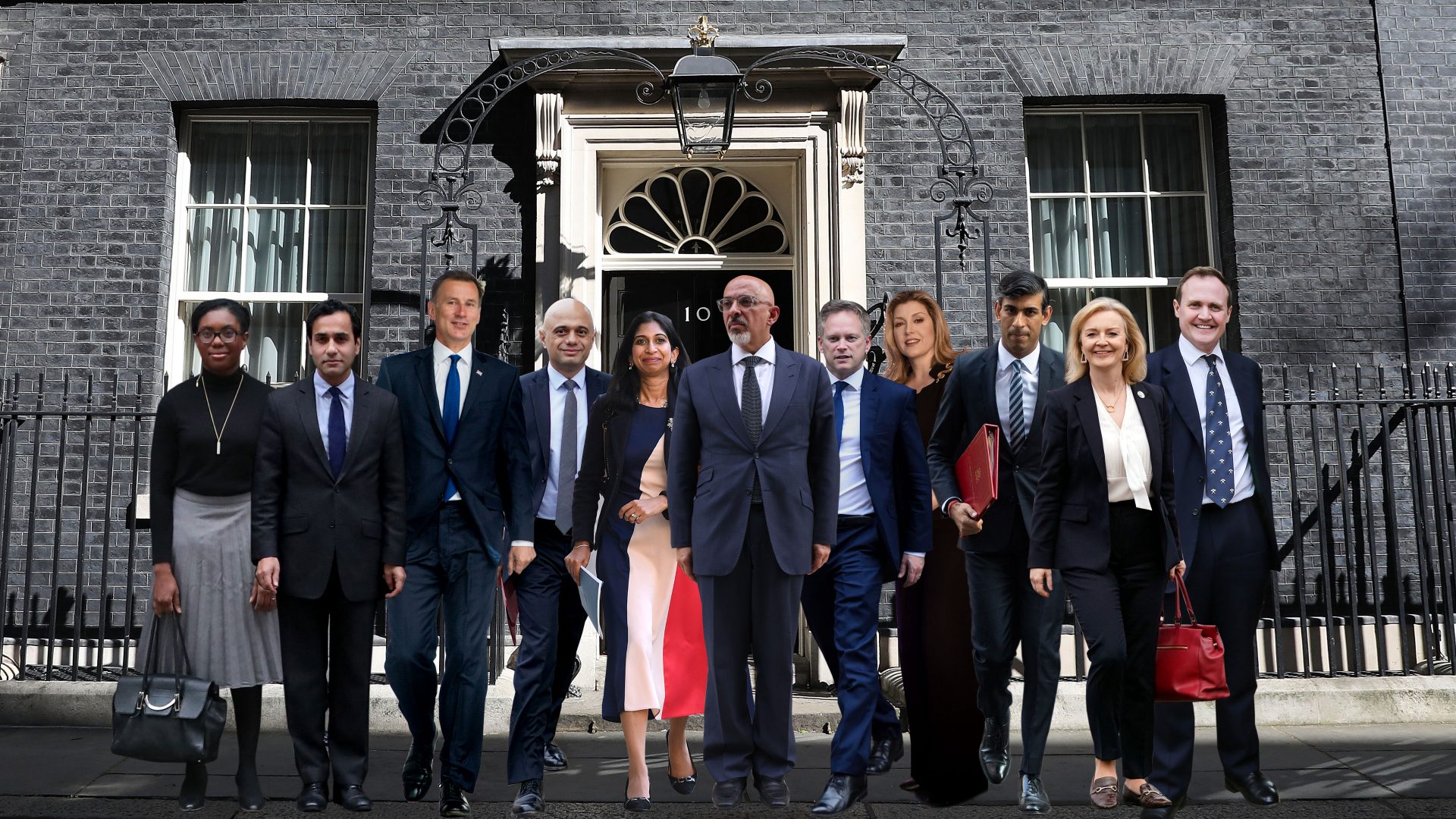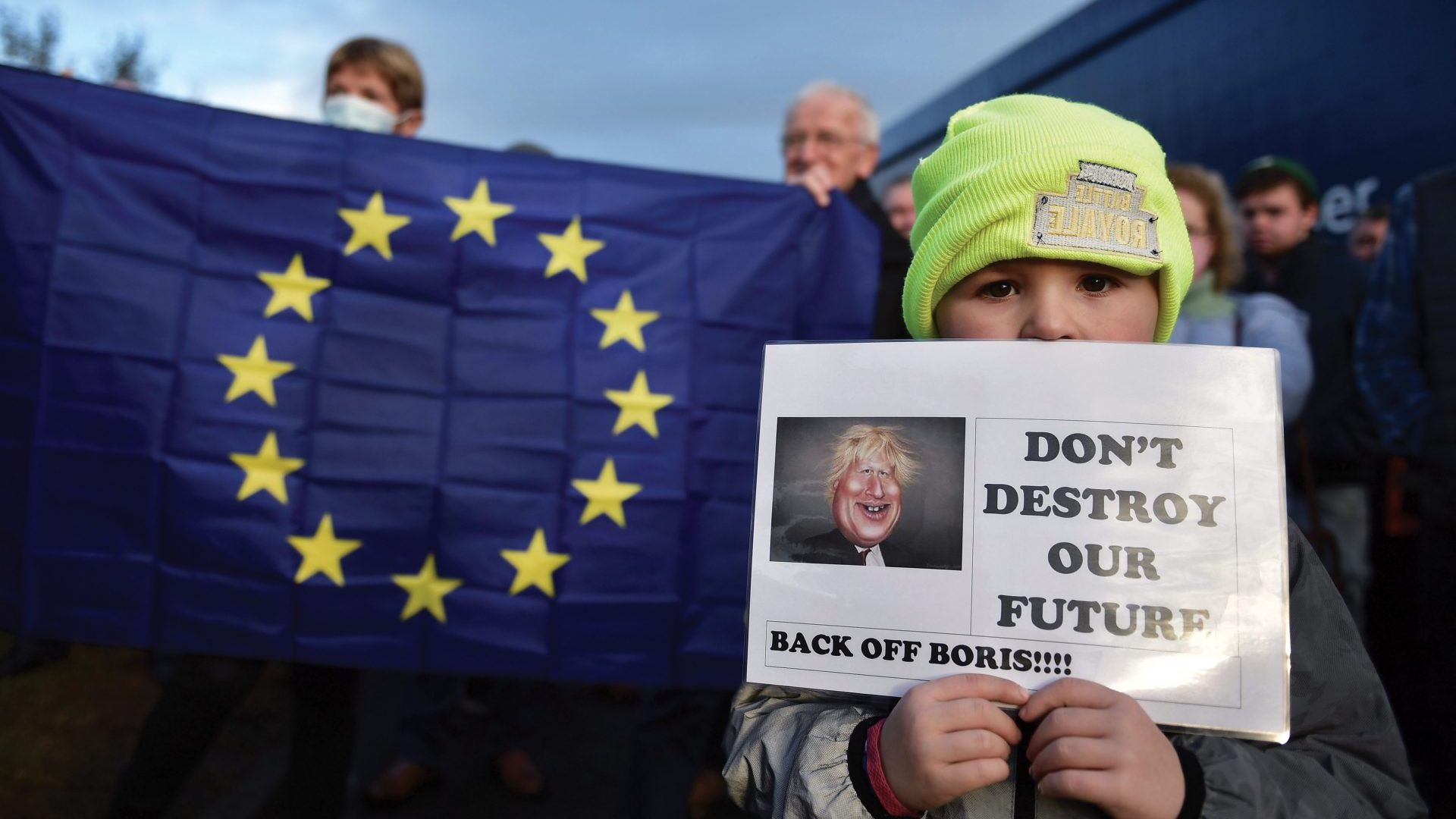And so once again we return to that most unedifying of spectacles – a dirty dozen of Conservative MPs out-competing one another to appeal first to their fellow parliamentarians, and then soon to the small selectorate that will pick the party’s next leader.
Except that’s not all the eventual winner of the contest will become. Barring an unlikely but not impossible attempt by Johnson to barricade himself in the corridors of power, within a few days of the contest’s end its winner will become prime minister, with a little over 18 months to run the government before they are forced to call an election.
In this case, the winner will not just become prime minister, but a prime minister with a majority of more than 70 (Johnson’s 80 has been eroded by byelection losses and suspensions of the whip).
That could be startling at the best of times: leaders rarely come into power wanting to enact exactly the policies of their predecessors. As a result, it feels deeply bizarre that a few hundred MPs and then what’s believed to be fewer than 100,000 voters – or 0.2% of the electorate – get to pick the new prime minister, while the rest of us get no say at all.
This is hardly the best of times, though. We have a cost-of-living crisis that is worse than at any time since the second world war. We’ve got inflation still around 10%, with no clear guarantees that it will fall back. The NHS and other public services are at breaking point. And lest we forget, the coronavirus pandemic is still not over, even if deaths and hospitalisations are not as devastating as once they were.
You would struggle to know that from any of the manifestos the Conservative candidates are setting forth. You might expect – or at least hope – that in a race with so many candidates there would be a wide range of visions of what the future of the party could be.
You would be disappointed: almost all the candidates are offering some mix of culture war and tax cuts – with the main difference being the relative levels of each. The EHRC will be scrapped, green levies will be scrapped, VAT on fuel will be cut – the planet be damned – VAT in general will be cut, the corporation tax rise reversed, and so much more.
The one candidate differing from the pack appears to be Rishi Sunak, who is not diverging on the culture war – the “war on woke” will be, he says, his first priority – but for novelty is not offering any tax cuts, either. Or at least was trying to hold that line at the time of writing.
Every serious economist is aghast, pointing out that services do eventually need to be paid for, tax cuts need some kind of funding, and badly targeted unfunded tax cuts during a period of high inflation can boost that inflation. Labour is pointing out the unfairness of hundreds of billions of Tory spending being promised with far less backlash than when Labour made far more modest plans.
And most of the rest of us are sitting with our heads in our hands wondering how it’s come to this.
Much of that despair is very much warranted. But for some of it we should remember that every political system works differently and this is, for good and for ill, an integral feature of how ours works.
We elect MPs, who in turn with their numbers and their votes show which politician can command a majority of the Commons to form a government. We do not directly elect prime ministers – our system is parliamentary, not presidential.
This is why for all Boris Johnson mistakenly talked about “his” mandate and “his” 14 million votes, his MPs and ministers were still able to remove him – very obviously against his will – in just 48 hours, albeit an incredibly messy and undignified (but very fun for the rest of us) 48 hours.
Because the system is parliamentary as opposed to presidential, removing the prime minister was in the power of the MPs of the governing party (or in the case of a hung or minority parliament, the governing coalition). Once upon a time, Conservative MPs would just have picked a new party leader and prime minister themselves, with no recourse to members. Letting them in is a relatively recent innovation.
It feels strange and undemocratic because the Conservatives are the party in government right now. If the Conservatives were in opposition, it would feel completely bizarre and unreasonable to suggest that anyone outside the party should be able to impose themselves on the selection of leader.
But because the leader immediately becomes prime minister in this instance, it feels off – largely because we tend to imbue prime ministers with presidential-style coverage, even if they lack presidential-style powers.
The reality is, the new leader of the Conservative party will hit the ground with a thump. They have no personal mandate and their manifesto is not tested with voters. MPs – knowing an election is not that far away – will feel little obligation to back legislation that is unpopular with voters. Peers will feel emboldened to block any legislation that wasn’t in the party manifesto.
The size of the Conservative majority means a new leader isn’t automatically a lame duck, but they do come in with substantially less real power than the ostensible power they wield. That could easily lead them to the ballot box quicker than Johnson might have done had it been entirely up to him.
Johnson may have done much to damage the conventions and norms of British political life – but unlike his counterpart Donald Trump, he has stopped short of destroying them entirely. Manifestos and mandates still, just about, matter in the UK, and the new leader will come in lacking both – whether or not they care about that personally, they might quickly find that parliament still does.
The parliamentary system let the Conservative party rid itself of Boris Johnson. It is also what puts the choice of who replaces him entirely in their hands. Changing that would mean changing the political system – and that’s something that belongs in a manifesto.




